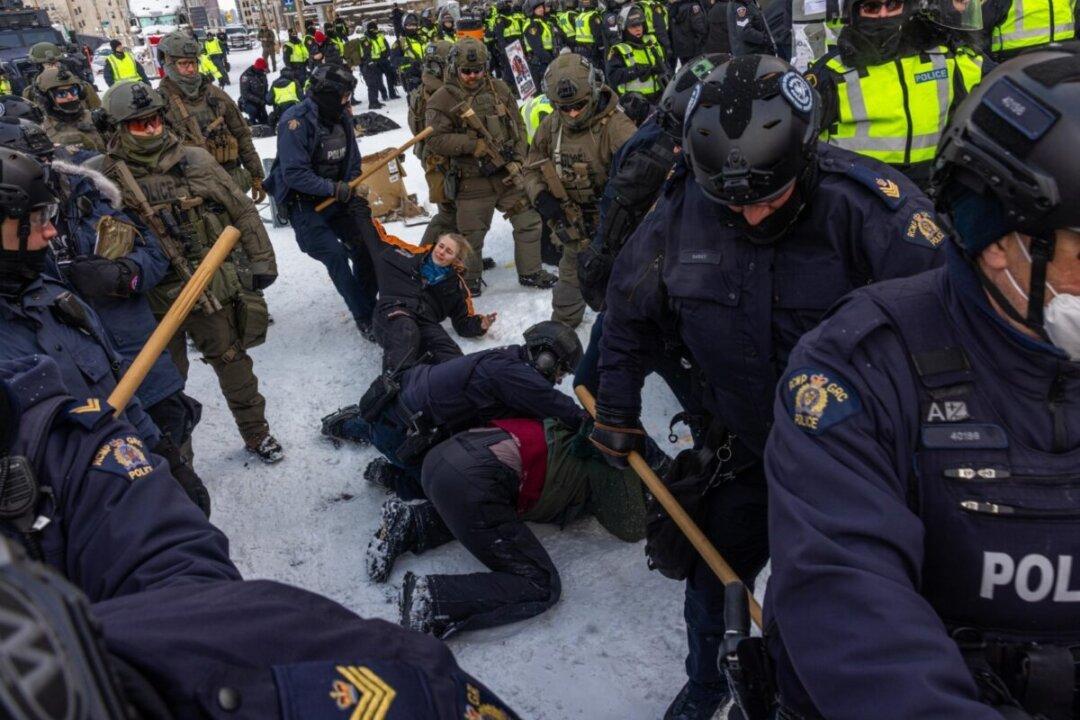Many Canadians say they are unhappy with the police response to the Freedom Convoy in February, according to an internal survey conducted for the federal government. Even those who opposed the protest said the freezing of bank accounts would never have been necessary if “more had been done” to engage with protestors.
“Participants were generally dissatisfied with the response of the Government of Canada,” said a Privy Council Office report, titled “Continuous Qualitative Data Collection Of Canadians’ Views.”





